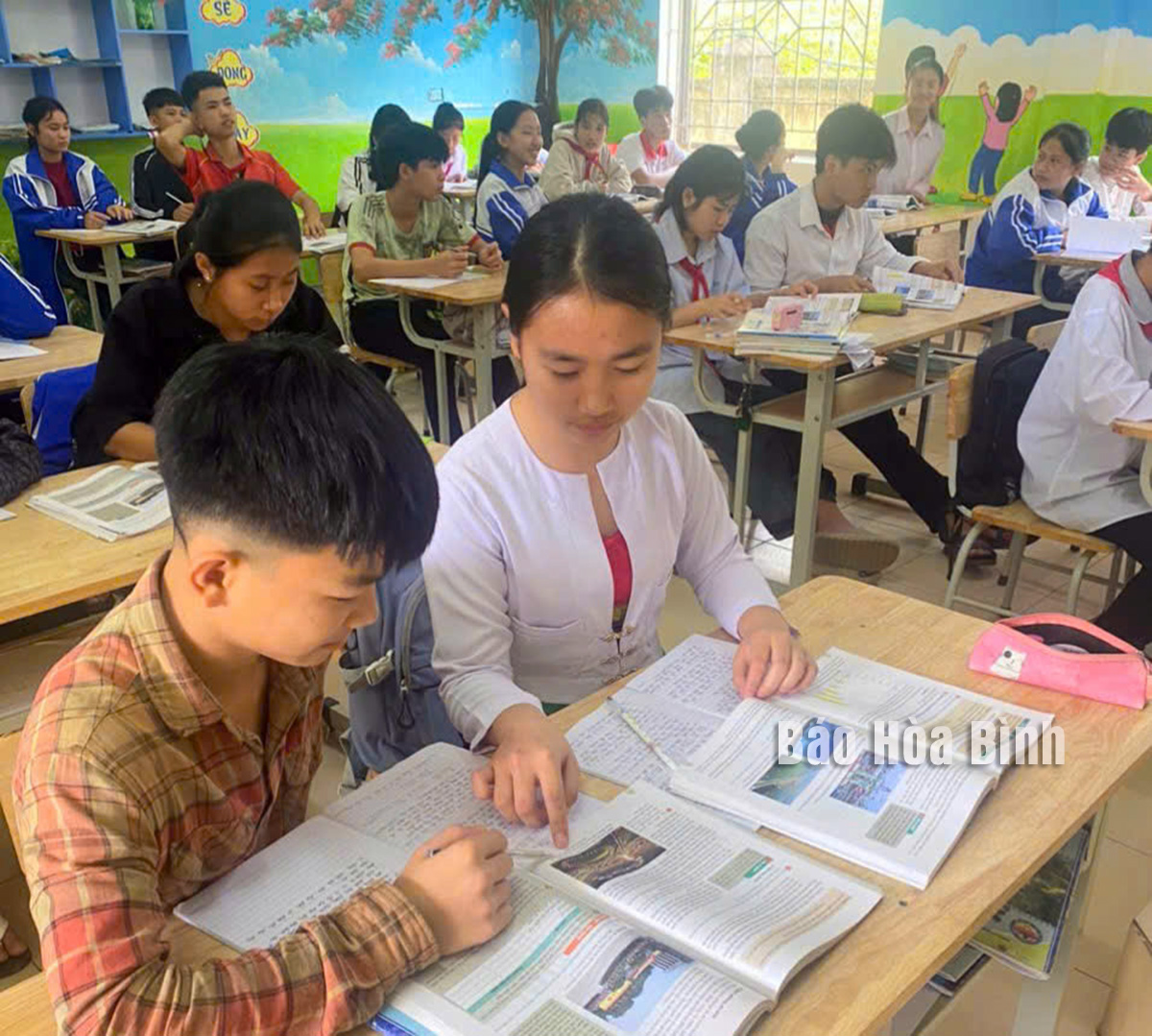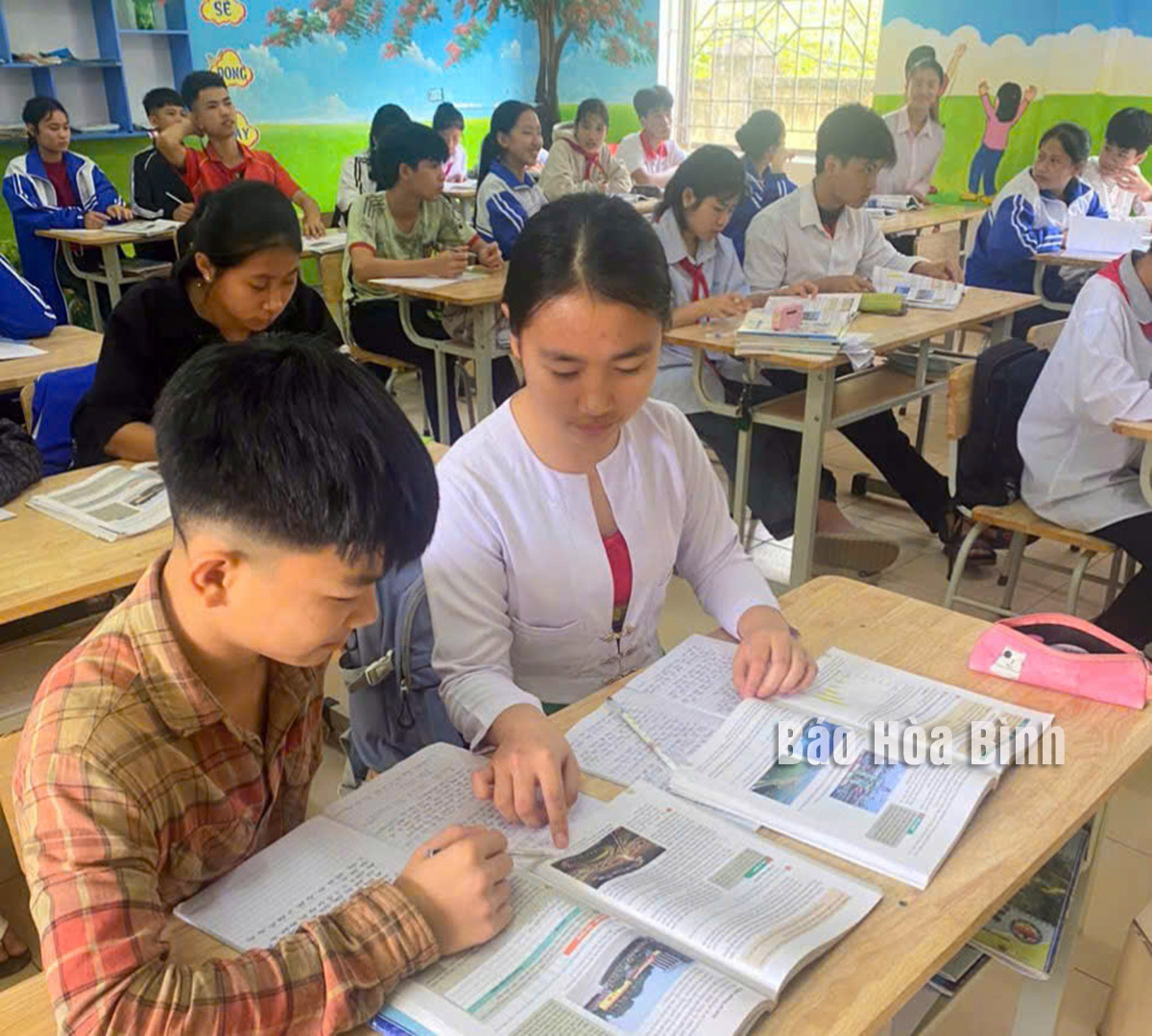


Currently, five other schools that met the standards in the previous phase are undergoing construction and are being supplemented with facilities and equipment to fulfill the criteria for education quality accreditation and national standards. The province also has 11 ethnic semi-boarding schools with 3,341 students, of which four have met national standards, accounting for 36.4 percent. In recent years, ethnic minority education has received attention and witnessed many positive developments.
 Lac
Sy Ethnic Semi-Boarding Primary and Secondary School in Yen Thuy district has
received investment in spacious facilities, contributing to improving the
quality of ethnic minority education.
Lac
Sy Ethnic Semi-Boarding Primary and Secondary School in Yen Thuy district has
received investment in spacious facilities, contributing to improving the
quality of ethnic minority education.
Located in a remote and extremely difficult area of Yen Thuy district, Lac Sy Ethnic Semi-Boarding Primary and Secondary School has recently been equipped with spacious, clean and modern facilities. Nguyen Manh Tung, the school principal said: The school has been invested in with the construction of two outdoor libraries, two computer rooms and projectors for classrooms.
Investment in spacious and modern facilities is a necessary condition for improving the quality of ethnic education. With these advantages, schools are strictly implementing the enrollment of students for lower and upper secondary levels according to regulations for ethnic boarding schools, ensuring proper student selection by subject and unit size, fairly and democratically, with quality ensured through entrance exams for grade 10 and selection procedures for grade 6. The review and selection of semi-boarding students are conducted according to set criteria.
Schools have conducted beginning-of-year quality assessments to classify students, develop plans to assign teachers to support excellent and gifted students, and organize tutoring for students with weak academic performance. They also strengthen education to raise students' awareness of the Party’s and State’s ethnic policies, guidelines, and programs, as well as promote understanding of the cultural identity and fine traditions of Vietnamese ethnic groups. Efforts are made to improve the quality of legal education, dissemination and awareness-raising among students.
Schools focus on teaching life skills and learning methods, organizing extracurricular activities, and conducting cultural, artistic, sports events… These efforts aim to enrich students’ spiritual lives and foster political awareness, moral character, lifestyle, life skills, contributing to their comprehensive education.
In addition, according to the annual academic plan of the education sector, the Department of Education and Training organizes activities for various student groups that combine physical training, entertainment, recreation with moral and disciplinary education. Notable programs include the Phu Dong Sports Festival football tournament, the national defense and security education sports festival for high school students, badminton and table tennis tournaments, the Melodies of Youth contest, graduation ceremonies for final-year students. Ethnic boarding and semi-boarding schools follow regulations for boarding management by establishing dormitory rules, internal codes of conduct, and promoting a civilized, respectful lifestyle. These schools guide students in maintaining discipline, raising awareness, and developing effective self-study habits.
As a result, academic performance, competency assessments for students in ethnic minority areas are steadily improving. The rate of 11-year-old students completing primary education has reached 96 percent (94% among ethnic minority students), while the graduation rate for adolescents aged 15 - 18 completing lower secondary education has reached 97% (95% among ethnic minority adolescents).